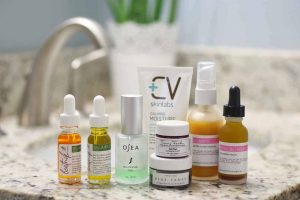
As the demand for organic skincare products continues to rise, it becomes essential to understand the significance of organic certification. In the beauty industry, where terms like “natural” and “organic” are often used loosely, certification plays a crucial role in ensuring the authenticity and quality of skincare products. In this article, we will delve into the importance of organic certification, explore different certification standards, and provide practical examples to guide you in making informed choices. By understanding organic certification, you can confidently select skincare products that align with your values and prioritize your skin’s health and well-being.
I. The Significance of Organic Certification
Organic certification serves as a guarantee that skincare products meet specific standards and regulations. It provides consumers with confidence in the product’s authenticity and ensures that they are free from harmful chemicals and synthetic additives. Here are the key reasons why organic certification is significant:
- Trust and Transparency Organic certification builds trust between consumers and brands. It assures consumers that the products they are purchasing are genuinely organic and produced in accordance with strict guidelines.
- Quality and Safety Certified organic skincare products undergo rigorous testing and adhere to specific standards. This ensures that they are free from pesticides, genetically modified organisms (GMOs), and potentially harmful chemicals, promoting the safety and well-being of consumers.
- Environmental Sustainability Organic certification emphasizes sustainable agricultural practices and the use of renewable resources. Certified products are made from ingredients that are grown without the use of synthetic fertilizers, pesticides, or herbicides, reducing the environmental impact.
II. Common Organic Certification Standards
Several reputable organizations provide organic certifications for skincare products. Let’s explore some of the most recognized certification standards:
- USDA Organic The United States Department of Agriculture (USDA) offers the USDA Organic certification, which ensures that products meet strict organic standards. It guarantees that at least 95% of the ingredients are organic and free from synthetic additives.
- Ecocert Ecocert is a global certification body that verifies organic and natural cosmetics. Their certification guarantees that products meet stringent ecological and organic criteria. Ecocert considers factors such as ingredient sourcing, processing methods, and packaging sustainability.
- COSMOS Organic COSMOS Organic is a widely recognized certification for organic cosmetics. It is a collaborative effort by various European certification bodies and sets strict standards for organic and natural skincare products. COSMOS Organic certification evaluates the entire production chain, ensuring transparency and sustainability.
III. Practical Examples and Celebrity Endorsements
- Gwyneth Paltrow, Founder of goop “At goop, we believe that organic certification is essential for skincare products to ensure purity and safety.”
Gwyneth Paltrow’s brand, goop, emphasizes the importance of organic certification and offers a range of certified organic skincare products. Their commitment to certification ensures that consumers can trust the purity and quality of the products they purchase.
- Dr. Alkaitis, Founder of Dr. Alkaitis Organic Skincare “Organic certification provides assurance that our products are not only safe but also promote the health and vitality of the skin.”
Dr. Alkaitis Organic Skincare is known for its commitment to organic certification. Their products are certified by Ecocert, highlighting their dedication to producing skincare products that prioritize skin health and well-being.
- Juice Beauty, Certified Organic Skincare Brand Juice Beauty is a brand that has achieved USDA Organic certification for many of its products. Their commitment to organic certification showcases their dedication to using high-quality organic ingredients and promoting environmentally friendly practices.
Conclusion
Understanding organic certification is crucial for making informed decisions when choosing skincare products. Certificationprovides trust, transparency, and assurance that products meet strict standards of authenticity, quality, and safety. By familiarizing yourself with common certification standards such as USDA Organic, Ecocert, and COSMOS Organic, you can confidently select skincare products that align with your values and promote the health of your skin. Real-life examples and celebrity endorsements, such as Gwyneth Paltrow’s goop and Dr. Alkaitis Organic Skincare, further emphasize the significance of organic certification in the beauty industry. Remember, choosing certified organic skincare products not only benefits your skin but also contributes to a more sustainable and environmentally friendly future.















